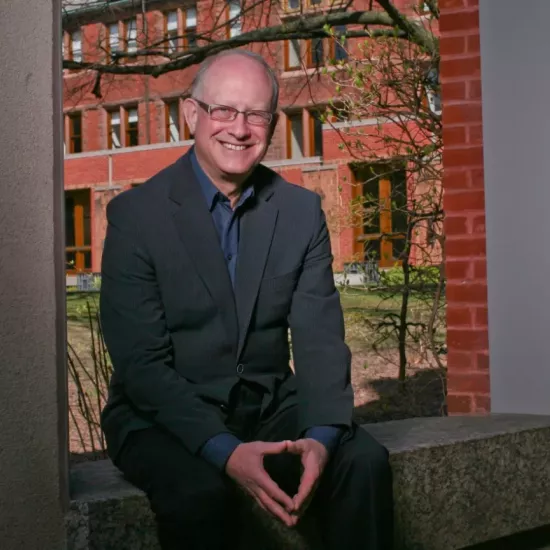International Relations Inspirations: Professor Nadège Compaoré

This article was originally published on the Black at UTM website. To read the original piece, please click here.
U of T Mississauga Political Science professor is motivated by her keen interest in African agency
Nadège Compaoré never expected she would end up being a researcher in political science. As an avid lover of literature, Compaoré was devoted to studying liberal arts, only to make the transition to political and economic studies while completing her Bachelor of Arts degree at Trent University, before going on to earn a PhD in Political Studies from Queen’s University.
It was Compaoré’s experience growing up in Burkina Faso and observing the levels and types of power dynamics that initially sparked her interest in political science.
“Being from a country that was formerly colonized by France, the politics in Burkina Faso were always tied to decision making in France,” says Compaoré, now an assistant professor in UTM’s Department of Political Science.
Compaoré also credits her broad undergraduate studies program that allowed her to connect her passions in both literature and political studies.
“In addition to the typical literature in international relations, my “Introduction to Global Politics” professor used novels to demystify some of the politics,” says Compaoré. For example, he used Atwood’s Handmaid’s Tale to introduce us to gender and politics, as well as Things Fall Apart by Chinua Achebe to discuss post-colonial politics.”
In her current research, Compaoré specializes in the fields of international relations theory, African politics, and global and African extractivism, and is increasingly interested in issues of gender and race in international relations.
Compaoré is pursuing two very different projects related to topics in African agency.
Her primary research looks at claims of sovereignty by African state- and non-state actors around resource extraction, particularly informed by the Permanent Sovereignty over Natural Resources principle passed by the United Nations in 1952. She has completed extensive fieldwork in Gabon, Ghana, and South Africa, and observed varying commitments by African states to Western-backed governance structures of the extractive sector, such as to the Extractive Industries Transparency Initiative (EITI). Compaoré wants to unpack the discrepancy in the response by various African states towards the EITI.
Her work will ultimately result in a book that focuses on the principle of Permanent Sovereignty over Natural Resources and how it manifests in African states and extractive industry practices today.
Her second project investigates the history of Pan-Africanism, both in Canada and at- large.
“[Pan-Africanism] is essentially a vision of liberation, self-determinization, emancipation – and brings the Black diaspora and the African continent together,” says Compaoré.
She was first inspired to study Pan-Africanism after attending a panel at York University on the topic, and recalls one of the guiding questions being ‘Where are the women in Pan-Africanism?’
“This project is the link between Pan-Africanism, Black-female internationalism, and more and more looks at Canada’s role in Pan-Africanism,” says Compaoré.
She is aiming to uncover forgotten female Pan-African leaders and their influence and place in Canada, as well as their motivations and achievements in other global spaces.
Though distinct and important in their own ways, Compaoré finds her research projects intersect in a unique way.
“For me, it’s always about agency,” says Compaoré.
“It’s about actors who are assumed to not really have much agency, but they do. It’s about figures who aren’t just hidden, but are rendered hidden. It’s also about African politics beyond the continent. I think it’s all related, and I’m able to bring my theoretical background to both projects in pursuit of this knowledge.”
To students who are interested in pursuing academia or similar research, Compaoré advises them to make their own connections, based on their own interests.
“Get involved and reach out,” says Compaoré
“Once you find what you like, your passion, your enthusiasm, do the work, find the resources – people resources, institutional resources – and go from there.”



